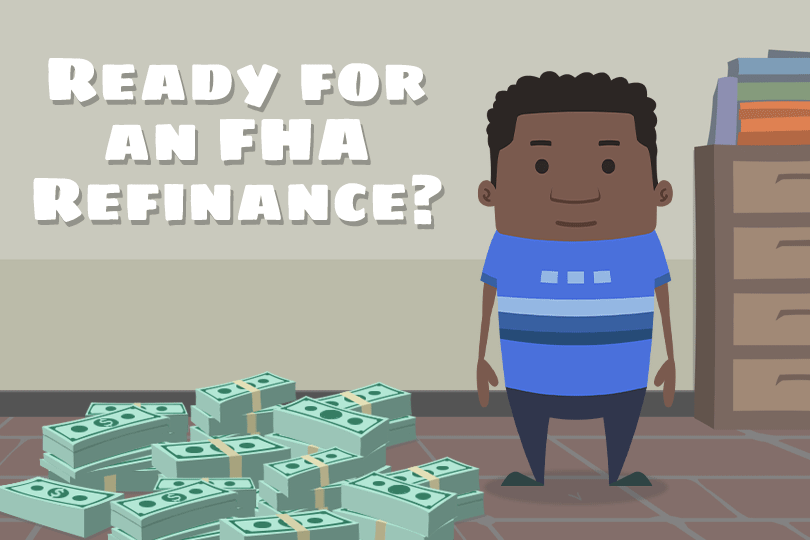When not to Consider Refinancing a Home
March 13, 2024
But there are other smart reasons not to refinance a home or to delay the decision until later. We examine some of the major ones below.
FHA Refinance Loans for Long-Term Homeowners
If you plan to refinance your home loan, you’ll need to save for the closing costs, origination fee, etc. One lender estimates the price of a refinance loan to be between 3% and 6% of the loan amount.
But does paying that fee make sense if you don’t plan to stay in the home for a long time? If you’re considering selling the property in the short term or even a bit longer down the road, you may do well to save the expense of a refinance loan in anticipation of not owning the home any longer.
If you plan to keep the house long-term, the math is different. How much do you save on a monthly mortgage payment by refinancing? Refinancing may make more sense if you aim to lower your monthly bills.
However, refinancing to save money throughout the loan in interest doesn’t work if you don’t stay in the house long term.
Refinance to Renovate?
If you need cash to improve a property, there are multiple FHA options to refinance. The numbers drive a decision to go with an FHA cash-out refinance or an FHA 203(k) rehab loan.
If you want to make standard improvements that don’t require work on load-bearing walls, you can use a smaller 203(k) rehab loan rather than fully refinancing your home with a cash-out loan to do so.
If you need to do extensive work covered under the 203(k) program, applying for a standard 203(k) refinance loan may be wise.
Why? Because an FHA cash-out refinance is limited to 80% of the home's value. A 203(k) rehab refinance loan offers an LTV of “110 percent of the After Improved Value (100 percent for condominiums)” or the appropriate area loan limit according to HUD 4000.1, the FHA Single-Family Lender’s Handbook.
Don’t Refinance to Cover Credit Card Debt
Why give this advice specifically to those who want to apply for an FHA cash-out refinance loan to pay off credit card bills? Because using credit to pay off revolving credit can lead to the borrower running up the same accounts again later, canceling out the first credit card payoff.
It’s better to pay off debt that won’t recur if you do so with an FHA cash-out refi.
------------------------------
RELATED VIDEOS:
Don't Skip the Home Inspection
Bigger is Better With a Jumbo Loan
Insuring Mortgages With the FHA Funding Fee

FHA Loan Articles
September 8, 2023Borrowers considering an FHA loan should be familiar with some basic loan terminology. These loans are popular among first-time homebuyers and those with lower credit scores because they often offer more flexible eligibility requirements and lower down payment options.
September 2, 2023You may have heard the terms co-borrower and cosigner in connection with your FHA loan process, but aren't sure about the distinction. Both a co-borrower and a cosigner can help a primary borrower qualify for a mortgage, but they have different roles and responsibilities.
August 27, 2023The Federal Housing Administration has specific credit requirements and guidelines for borrowers looking to buy or refinance homes with an FHA loan. In addition to what FHA guidelines state, lenders may have more stringent requirements that may vary from one lender to another.
August 23, 2023Mortgage APR (Annual Percentage Rate) and a loan's interest rate are two different things, although they are closely related. Understanding the difference is an important part of a borrower's analysis of the true cost of their mortgage.
August 19, 2023FHA refinance loans allow homeowners with existing FHA loans to refinance their mortgages. These loans are designed to help borrowers take advantage of lower interest rates, reduce their monthly mortgage payments, or access equity in their homes for various purposes.







